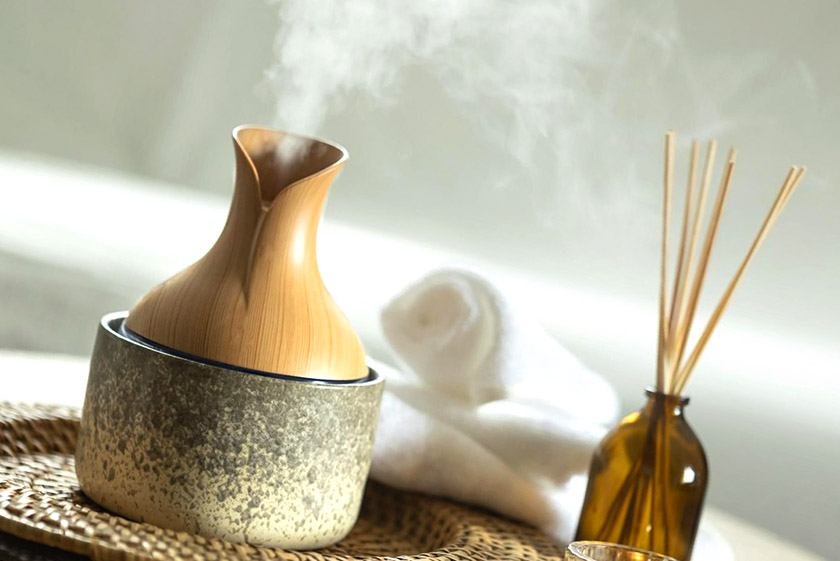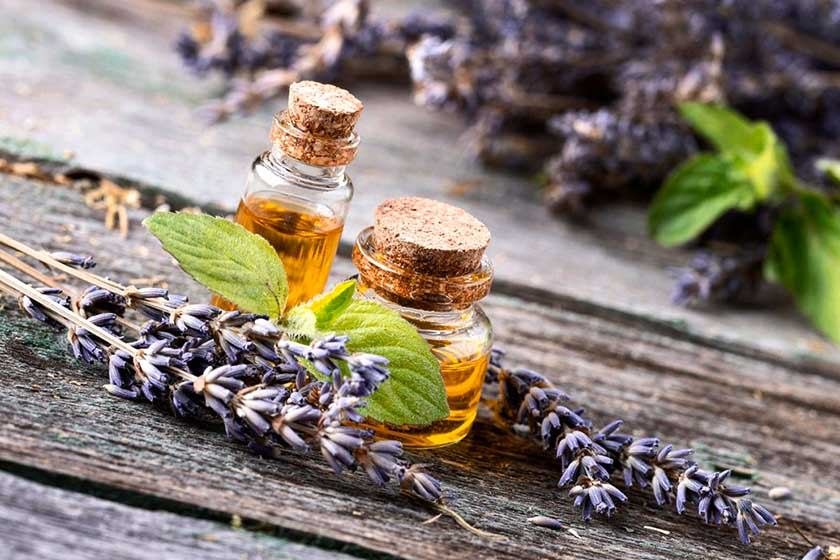A pleasant-smelling home is not merely a luxury – it establishes a welcoming atmosphere and can significantly enhance one’s mood through effective use of home fragrance and natural fragrances.
However, what occurs when unwanted odors become prevalent? Various factors can contribute to an unpleasant scent in living spaces, such as inadequate ventilation, cooking odors, and pet smells.
The best way to make your house smell good is by addressing these issues with proper cleaning, fresh air circulation, and odor-neutralizing solutions. This article examines the causes of undesirable odors, effective methods for their elimination using odor eliminators, and innovative strategies for infusing your home with pleasing fragrances like essential oils and scented candles.
Learn how to transform your home into a fragrant sanctuary with DIY air fresheners and potpourri.
Why Does Having a Good Smelling House Matter?
Maintaining a pleasant fragrance within the home is essential for fostering an inviting atmosphere that promotes overall well-being and comfort. The significance of home fragrance is profound, as it notably impacts air quality, mood enhancement, and creates a sense of nostalgia through aroma therapy.
A pleasing aroma in one’s living space can evoke positive scent memories, thereby making guests feel more at ease and enriching the overall home experience. Additionally, the appropriate combination of scents, such as lavender and eucalyptus, can transform the environment, creating a fresh and welcoming ambiance, which is vital for both personal wellness and the enjoyment of entertaining guests.
What Causes Bad Smells in the House?
Understanding the causes of unpleasant odors in a residence is the initial step toward maintaining a fresh and pleasant environment. Several factors contribute to these odors, including inadequate air circulation, soiled surfaces, pet-related scents, mold growth, and musty smells due to humidity.
Identifying these sources is essential for implementing effective odor resolution strategies. Utilizing tools such as natural air fresheners, diffusers, and odor eliminators can help restore freshness.
By adopting a systematic approach to home organization and cleaning, individuals can significantly enhance air quality and eliminate the underlying causes of undesirable smells.
1. Poor Ventilation
 Poor ventilation is a significant contributing factor to unpleasant odors within the home, as it inhibits effective air circulation and results in stagnant smells. When air flow is insufficient, it allows undesirable scents from cooking, pets, or other sources to persist longer than necessary. This not only detracts from the ambiance of the home but can also compromise air quality, making it essential to improve ventilation with air purifiers for a fresher and more inviting environment.
Poor ventilation is a significant contributing factor to unpleasant odors within the home, as it inhibits effective air circulation and results in stagnant smells. When air flow is insufficient, it allows undesirable scents from cooking, pets, or other sources to persist longer than necessary. This not only detracts from the ambiance of the home but can also compromise air quality, making it essential to improve ventilation with air purifiers for a fresher and more inviting environment.
To enhance air circulation and improve indoor air quality, homeowners can implement several practical strategies that yield noticeable improvements:
- Opening windows to facilitate cross-ventilation serves as a straightforward yet effective means of refreshing indoor air.
- Utilizing exhaust fans in kitchens and bathrooms aids in the removal of moisture and odors, thereby promoting a healthier living environment.
- Incorporating air-purifying plants like rosemary and lavender can further improve air quality while introducing a pleasant natural fragrance.
- Regular maintenance of HVAC systems is crucial to ensure they operate efficiently, thereby supporting optimal ventilation.
By taking these measures, homeowners will not only enhance the overall atmosphere but also contribute to a more pleasant living space with unique scents.
2. Dirty Surfaces
Dirty surfaces can harbor bacteria and grime, thereby contributing to unpleasant odors that permeate living spaces. Regular cleaning with effective home cleaning products, including environmentally-friendly laundry detergent, is the best way to make your house smell good and maintain a fresh, inviting environment. By employing natural deodorization techniques, such as vinegar solutions or baking soda air fresheners, one can address odors at their source while ensuring that the home remains a pleasant place to reside.
Establishing a consistent cleaning routine using seasonal scents can significantly enhance the overall atmosphere of a home. It is advisable to schedule time each week to address surfaces such as countertops, sinks, and floors, utilizing products that are both effective and safe for family members and pets.
Additionally, dusting shelves and furniture surfaces, along with the use of essential oil infusions with fragrance notes like cinnamon and vanilla, can elevate the ambiance of the space while imparting a soothing fragrance. Implementing straightforward practices, such as regularly airing out rooms and placing bowls of activated charcoal in corners, can effectively neutralize unwanted odors and improve overall air quality.
3. Pet Odors
Pet odors can be a significant source of unpleasant smells in many households, often arising from fur, dander, or incidents. To effectively manage these odors, it is essential to utilize odor neutralizers, fabric sprays, and natural air fresheners specifically formulated for pet-related issues. Incorporating natural air fresheners can also contribute to maintaining a fresh ambiance, ensuring that your home remains welcoming for both guests and family members.
Regular vacuuming with a high-efficiency particulate air (HEPA) filter can efficiently remove much of the dander and hair that become trapped in carpets and upholstery. Washing pet bedding frequently and employing enzymatic cleaners for accidents can significantly reduce lingering scents.
For persistent odors, it is advisable to consider using a professional-grade odor eliminator, which targets the source rather than merely masking the smell. Additionally, introducing indoor plants such as peace lilies or spider plants, recognized for their air-purifying properties, can enhance your home’s atmosphere by providing a fresh, clean scent that harmonizes with the presence of your pets and complements your home decor.
4. Mold and Mildew
Mold and mildew commonly proliferate in damp, poorly ventilated areas, resulting in musty odors that can compromise the air quality within a home. Timely intervention to address mold and mildew, including the use of air purifiers, is critical not only for the elimination of unpleasant odors but also for the maintenance of a healthy living environment. Regular inspections, coupled with effective odor masking techniques and herbal remedies, can aid in mitigating these concerns while promoting an improvement in air quality.
To recognize mold at an early stage, it is essential to remain vigilant, looking for indicators such as discoloration on walls or a persistent damp sensation in the air. Implementing preventative measures, such as utilizing dehumidifiers and ensuring adequate ventilation, can significantly diminish the risk of mold growth.
Regarding removing these unwanted intruders, employing natural herbal solutions such as tea tree oil or vinegar can effectively eliminate mold while imparting a fresh scent without the use of harsh chemicals. Additionally, promoting air circulation through the use of windows and strategically positioned fans contributes to maintaining a healthy indoor environment that is less conducive to mold development.
How to Get Rid of Bad Smells in the House?
 Eliminating unpleasant odors from a residence necessitates a proactive approach and the implementation of effective strategies tailored to individual challenges, including addressing environmental factors like humidity and ventilation.
Eliminating unpleasant odors from a residence necessitates a proactive approach and the implementation of effective strategies tailored to individual challenges, including addressing environmental factors like humidity and ventilation.
Employing a combination of air fresheners, natural scents, and odor eliminators can significantly enhance the home environment. By maintaining regular cleaning routines and incorporating pleasing aromas through diffusers, scented candles, and unique scents like citrus and floral, one can create a fresher, more inviting atmosphere in a timely manner.
1. Regular Cleaning and Maintenance
Regular cleaning is essential for maintaining a pleasant atmosphere in one’s home, as it prevents the accumulation of dirt and odors. Utilizing effective home care products, including appropriate laundry detergent, coupled with a routine that includes laundering fresh linens, ensures that living spaces remain inviting. Regular cleaning with effective home cleaning products, including environmentally-friendly laundry detergent, is the best way to make your house smell good and maintain a fresh, inviting environment.
A well-structured cleaning schedule is crucial for addressing various areas that are prone to odor accumulation, including kitchens, bathrooms, and pet areas. It is advisable to begin with the kitchen, as food particles can generate persistent odors – therefore, surfaces should be wiped down regularly, and appliances should be deep cleaned on a weekly basis.
In the bathroom, particular attention should be given to sinks and toilets, ensuring they are both sanitized and deodorized. Additionally, vacuuming carpets and upholstery should be an integral part of the cleaning routine to eliminate dirt and odor-absorbing particles. By implementing these targeted tasks, homeowners will not only improve their living environment but also enhance their well-being, ensuring that each return home is a refreshing experience.
2. Use Natural Air Fresheners
Utilizing natural air fresheners represents a commendable approach to infusing a pleasant fragrance into your home while avoiding the harsh chemicals typically present in synthetic alternatives. By formulating eco-friendly scents through essential oil recipes and DIY air fresheners, individuals can customize fragrances to align with their preferences, thereby enhancing their living environment. The incorporation of natural air fresheners serves not only to mask unwanted odors but also to foster an inviting atmosphere with scent layering techniques.
The appeal of these natural solutions lies in their simplicity and efficacy. With just a few readily available ingredients, one can produce air fresheners that are both aromatic and safe for families and pets.
Consider methods such as employing fragrance oils and experimenting with scent layering:
- Simmering citrus peels with herbs on the stove
- Preparing a refreshing spray using water, essential oils, and fragrance notes
These approaches contribute to a healthier indoor environment by incorporating natural alternatives while endorsing the principles of sustainable living, allowing for enjoyable scents without compromising eco-friendliness. Exploring these DIY recipes enables individuals to create a unique scent that reflects their personal style and scent preferences.
3. Eliminate the Source of the Odor
To effectively eliminate undesirable odors, it is essential to address the source of the smell rather than simply masking it. Employing odor-absorbing materials such as baking soda or utilizing a vinegar solution can neutralize unpleasant scents at their origin. This proactive strategy not only resolves the issue but also enhances the overall indoor air quality within the home, ensuring a make house smell good environment.
One practical approach involves investigating concealed areas, such as beneath the sink or behind appliances, where moisture or food particles may accumulate. Regular cleaning of these spaces, along with the use of activated charcoal, can significantly reduce persistent odors. Incorporating plants recognized for their air-purifying properties is the best way to make your house smell good while also creating a more pleasant and fresh environment.
Furthermore, it is advantageous to routinely wash textiles and upholstery with natural ingredients like lemon juice or essential oils. This practice, coupled with using laundry detergent infused with aroma therapy properties, not only enhances the efficacy of odor removal but also imparts a refreshing scent throughout the living space.
4. Use Odor Absorbing Materials
Utilizing odor-absorbing materials constitutes an effective strategy for mitigating unpleasant odors in residential environments, complementing the use of air purifiers to maintain a fresh atmosphere.
Incorporating items such as activated charcoal, vinegar, and essential oils into daily routines can significantly enhance the freshness of various spaces. Activated charcoal, noted for its porous structure, effectively traps odor molecules, making it an ideal choice for use in closets and bathrooms. Meanwhile, vinegar can be strategically placed in bowls around the kitchen to neutralize strong cooking odors while simultaneously absorbing excess moisture, contributing to effective home fragrance solutions.
For those seeking to introduce a pleasant fragrance, diffusing essential oils in living areas not only masks undesirable scents but also fosters a calming atmosphere with calming scents. These natural solutions enable homeowners to sustain a fragrant and inviting home while promoting environmentally friendly practices and matching the ambiance of the space.
What Are the Best Ways to Make Your House Smell Good?
 To enhance the aroma of your home, one can employ various scenting techniques that contribute to a pleasant atmosphere throughout the space. Utilizing a combination of essential oils, scented candles, scented sachets, and fresh flowers can significantly elevate the environment, infusing it with uplifting fragrances and home scents.
To enhance the aroma of your home, one can employ various scenting techniques that contribute to a pleasant atmosphere throughout the space. Utilizing a combination of essential oils, scented candles, scented sachets, and fresh flowers can significantly elevate the environment, infusing it with uplifting fragrances and home scents.
By thoughtfully curating an olfactory experience, homeowners can ensure that their residence remains inviting and fresh for all who enter.
1. Diffuse Essential Oils
Diffusing essential oils presents a straightforward yet effective method for enhancing the ambiance of one’s home. An essential oil diffuser disperses calming scents throughout the environment, thereby improving both air quality and mood. With a wide range of essential oil blends available, individuals can customize the fragrance to align with their personal preferences, making this a versatile solution for home fragrance and ensuring a best way to maintain a welcoming environment.
Along with providing a pleasant aroma, essential oil diffusers offer numerous benefits, including stress relief, improved sleep quality, and enhanced concentration. Noteworthy combinations, such as lavender and chamomile, are known to promote relaxation, while citrus blends like lemon and bergamot can invigorate the senses and elevate one’s mood.
By incorporating these aromatic experiences into daily routines, individuals can cultivate a nurturing atmosphere that not only delights the senses but also supports emotional well-being and tranquility. Embracing the practice of aromatherapy through the use of diffusers can effectively transform any living space into a sanctuary of peace and comfort.
2. Use Scented Candles or Wax Melts
Scented candles and wax melts are esteemed options for enhancing the ambiance of one’s home with pleasing fragrances. These products are available in a range of luxurious fragrances and seasonal scents, contributing to a warm and inviting atmosphere in any room. By strategically placing them throughout the home, one can create an inviting environment that reflects personal style.
The selection available spans a variety of options, from floral scents to warm vanilla, which may appear overwhelming. When choosing among these options, it is important to consider the mood one wishes to establish – for instance, a vibrant citrus scent may invigorate morning routines, while a rich, creamy caramel could be ideal for creating a cozy evening atmosphere.
Wax melts, in particular, offer exceptional versatility, enabling the layering of scents or the mixing of different fragrances to discover a distinct combination. To maximize their impact, the best way to make your house smell good is to utilize them during special occasions, aligning selections with the seasons to seamlessly complement the festive spirit.
3. Make Homemade Potpourri
Creating homemade potpourri offers an elegant method to infuse your home with natural fragrances. By combining dried flowers, herbs, and essential oils, individuals can craft unique blends that reflect their personal preferences while enhancing their living environments. This do-it-yourself approach not only facilitates scent layering but also adds a decorative element to any room, contributing to home decor.
This guide will demonstrate the simplicity of establishing a fragrant atmosphere that revitalizes the senses and fosters a sense of tranquility. Begin by selecting a variety of dried flowers such as lavender, rose petals, or chamomile, known for their calming aromas. Next, consider incorporating herbs like rosemary or mint, which are recognized for their fresh and uplifting qualities. Additionally, essential oils, such as jasmine or citrus, can be included to provide depth and invigorate your space.
Once the materials are assembled, the process of mixing and matching allows for the creation of a blend that is distinctly personal.
4. Use Fresh Flowers and Plants
Incorporating fresh flowers and plants into your home is the best way to make your house smell good, while also enhancing its visual appeal and improving air quality naturally. Various flowers, herbs, and houseplants, such as lavender and eucalyptus, contribute to an inviting atmosphere while providing natural air purification benefits. By thoughtfully selecting and arranging these botanical elements, individuals can elevate the fragrance of their living spaces with ease.
For example, fragrant varieties such as jasmine and gardenia not only produce a soothing scent but also promote relaxation and overall well-being. When arranging these plants, it is advisable to position them in areas with optimal air circulation, such as near windows or in open-plan spaces, to maximize the benefit of fresh air.
Regular maintenance of the plants, including trimming dead leaves and ensuring adequate light exposure, will help preserve their vibrancy and aroma. Furthermore, incorporating potted herbs like mint and rosemary serves as an enjoyable addition to the kitchen while also offering herbal remedies for various ailments.
This holistic approach combines aesthetics, fragrance, and health, effectively transforming one’s living environment into a serene oasis, enhancing mood enhancement and overall wellness.
For further guidance, see our FAQ section at the bottom.

